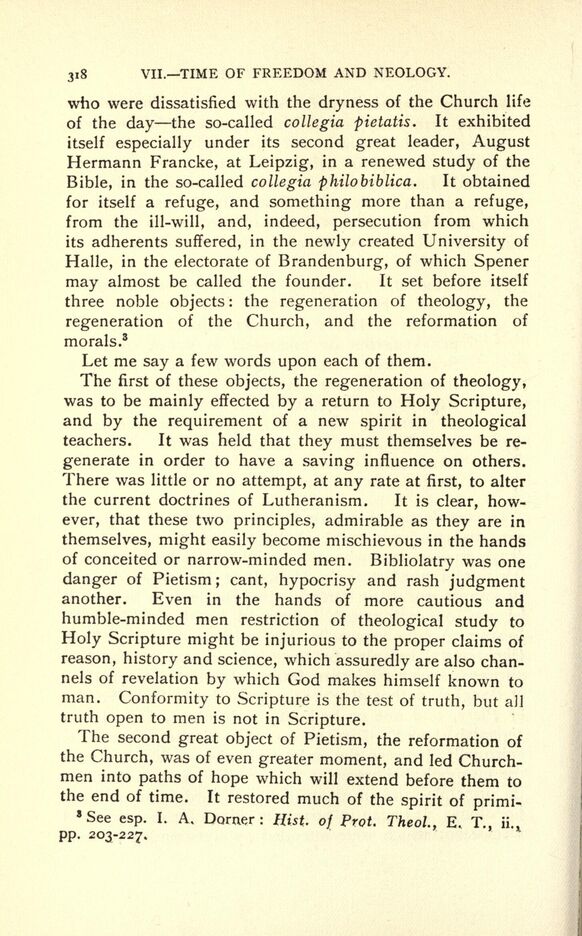
Full resolution (JPEG) - On this page / på denna sida - VII. The Church in the “Time of Freedom” and Period of Neology (1718—1811 A.D.)

<< prev. page << föreg. sida << >> nästa sida >> next page >>
Below is the raw OCR text
from the above scanned image.
Do you see an error? Proofread the page now!
Här nedan syns maskintolkade texten från faksimilbilden ovan.
Ser du något fel? Korrekturläs sidan nu!
This page has never been proofread. / Denna sida har aldrig korrekturlästs.
318 VIL TIME OF FREEDOM AND NEOLOGY.
who were dissatisfied with the dryness of the Church life
of the day the so-called collegia pietatis. It exhibited
itself especially under its second great leader, August
Hermann Francke, at Leipzig, in a renewed study of the
Bible, in the so-called collegia philobiblica. It obtained
for itself a refuge, and something more than a refuge,
from the ill-will, and, indeed, persecution from which
its adherents suffered, in the newly created University of
Halle, in the electorate of Brandenburg, of which Spener
may almost be called the founder. It set before itself
three noble objects: the regeneration of theology, the
regeneration of the Church, and the reformation of
morals.3
Let me say a few words upon each of them.
The first of these objects, the regeneration of theology,
was to be mainly effected by a return to Holy Scripture,
and by the requirement of a new spirit in theological
teachers. It was held that they must themselves be re
generate in order to have a saving influence on others.
There was little or no attempt, at any rate at first, to alter
the current doctrines of Lutheranism. It is clear, how
ever, that these two principles, admirable as they are in
themselves, might easily become mischievous in the hands
of conceited or narrow-minded men. Bibliolatry was one
danger of Pietism; cant, hypocrisy and rash judgment
another. Even in the hands of more cautious and
humble-minded men restriction of theological study to
Holy Scripture might be injurious to the proper claims of
reason, history and science, which assuredly are also chan
nels of revelation by which God makes himself known to
man. Conformity to Scripture is the test of truth, but all
truth open to men is not in Scripture.
The second great object of Pietism, the reformation of
the Church, was of even greater moment, and led Church
men into paths of hope which will extend before them to
the end of time. It restored much of the spirit of primi-
8
See esp. I. A. Doruer : Hist, of Prot. TheoL, E. T., ii ,
pp. 203-227.
<< prev. page << föreg. sida << >> nästa sida >> next page >>